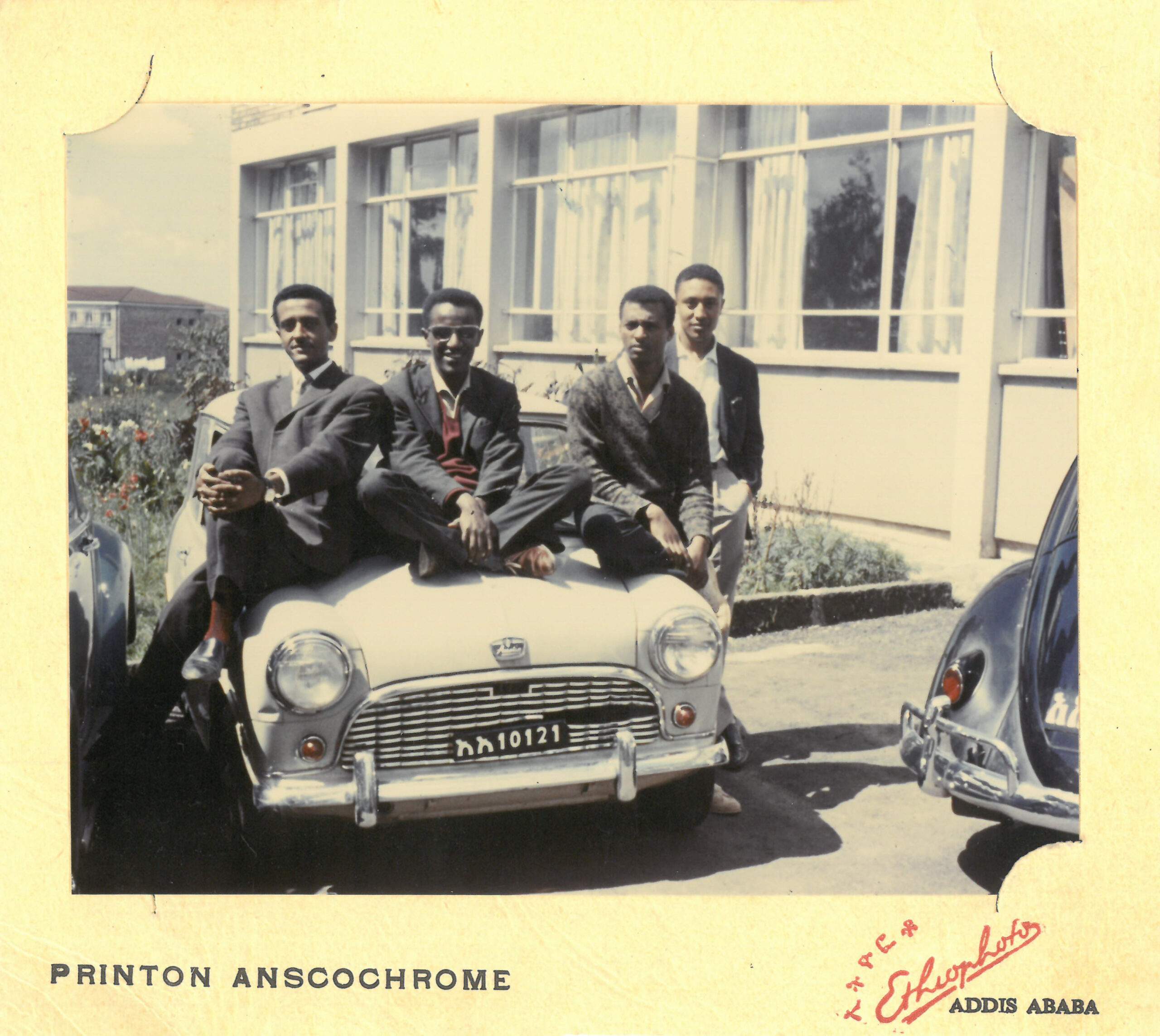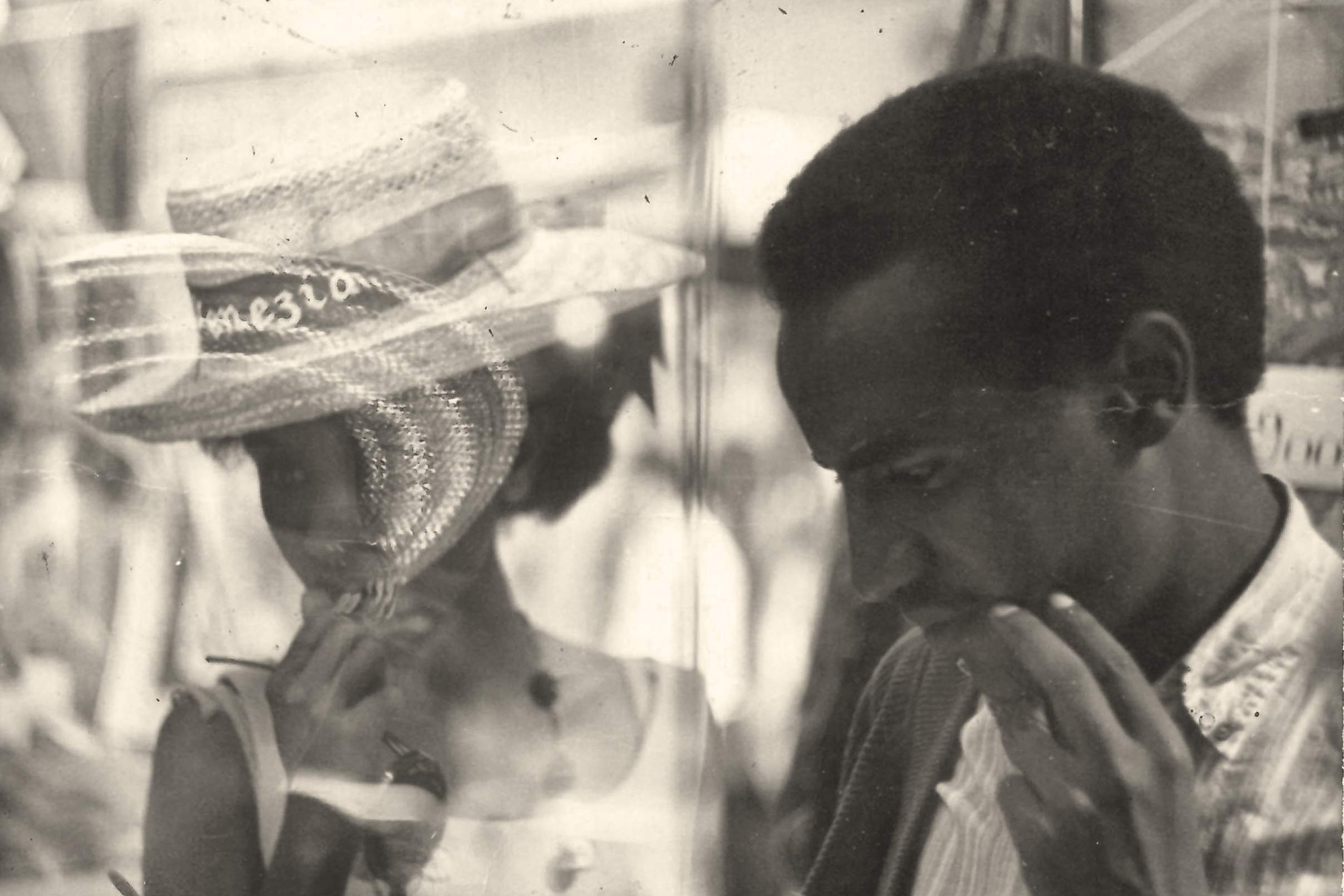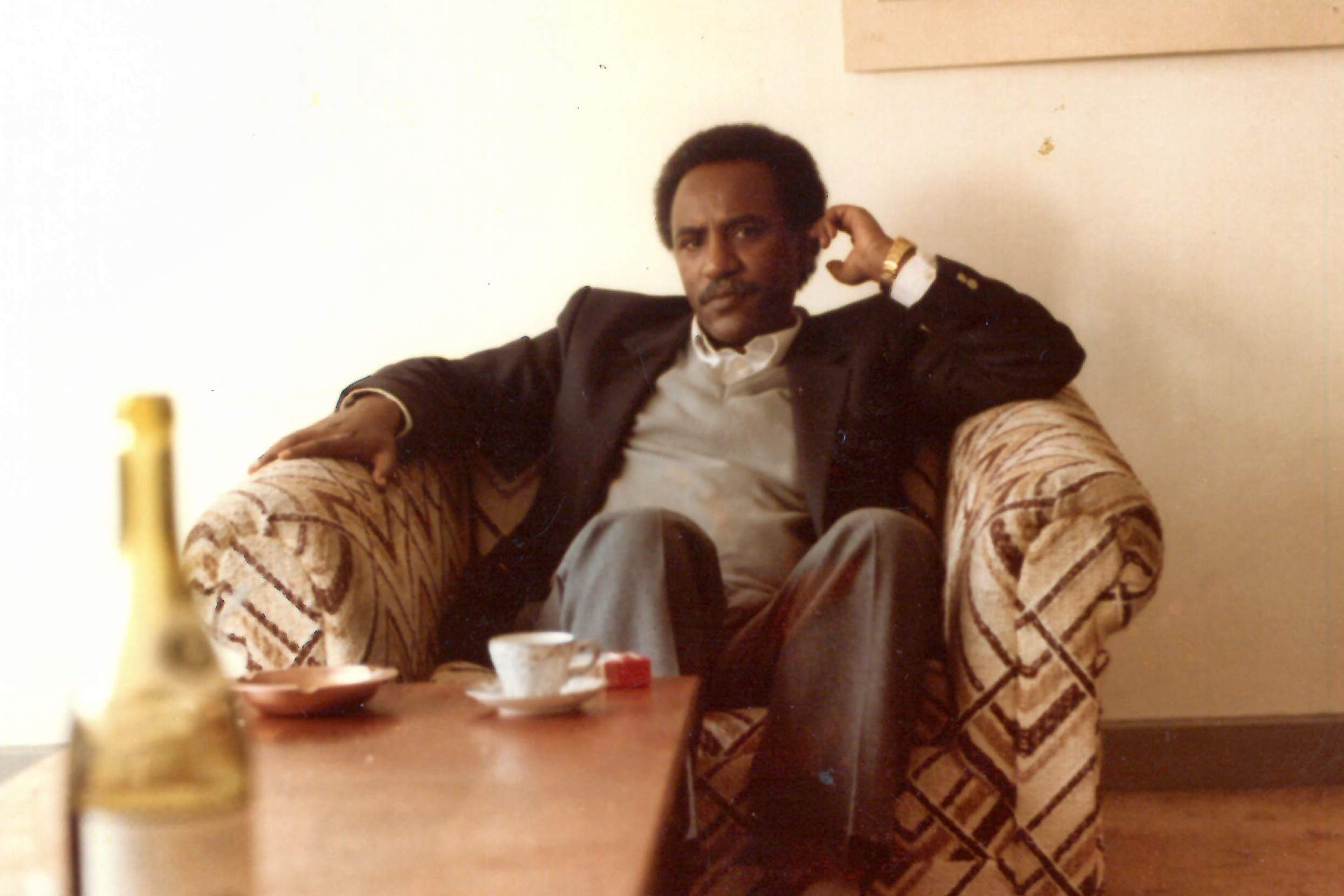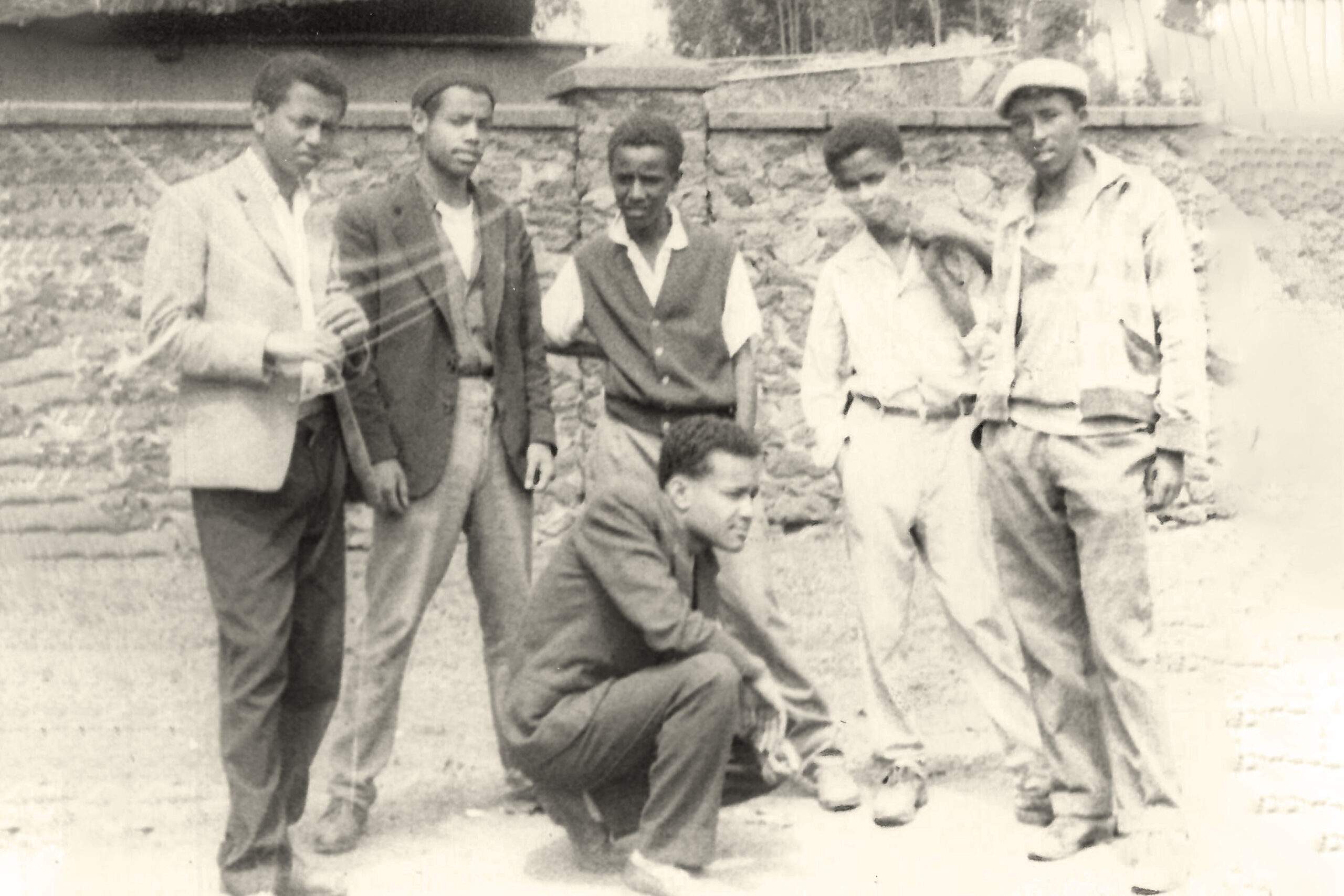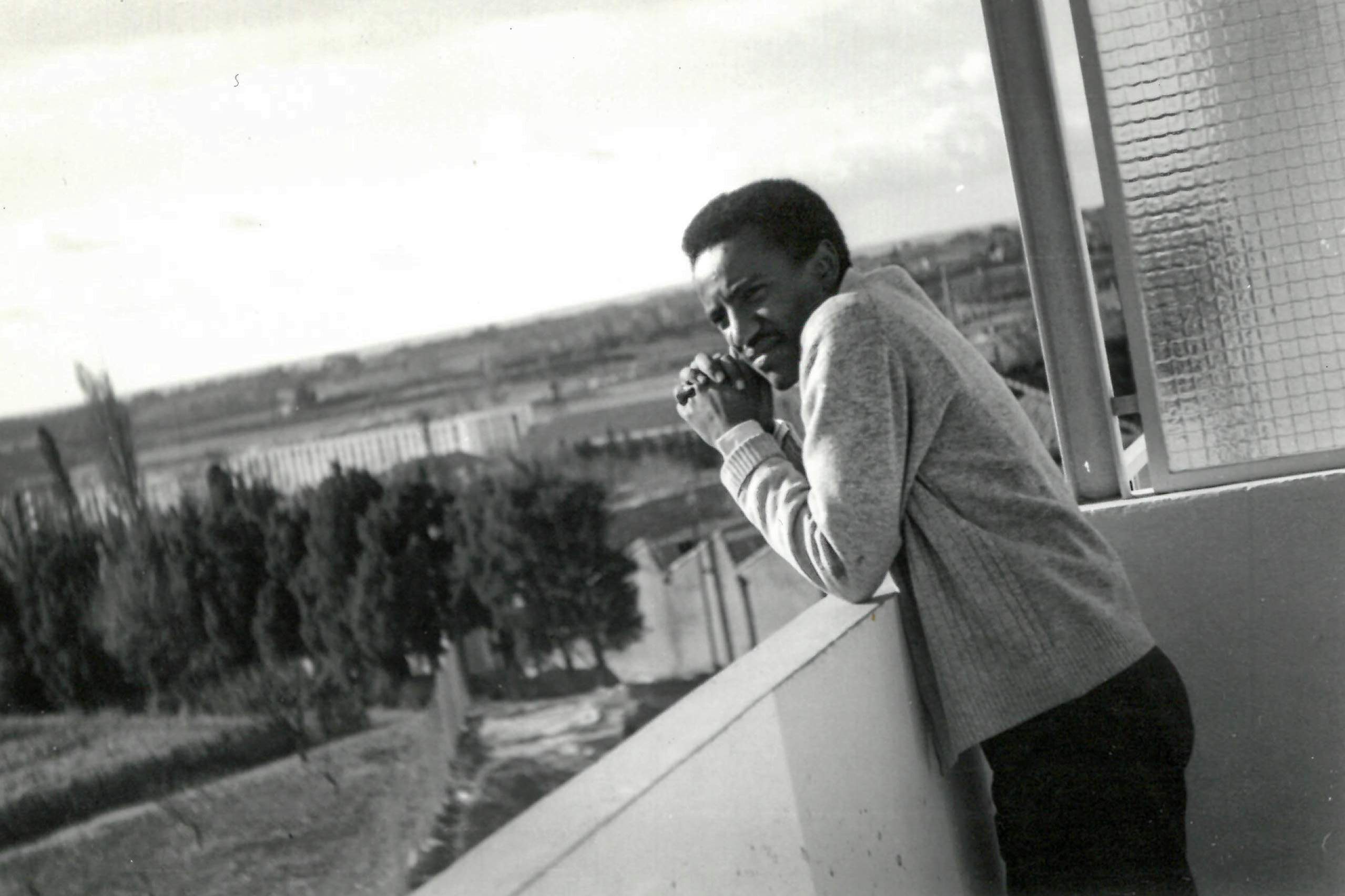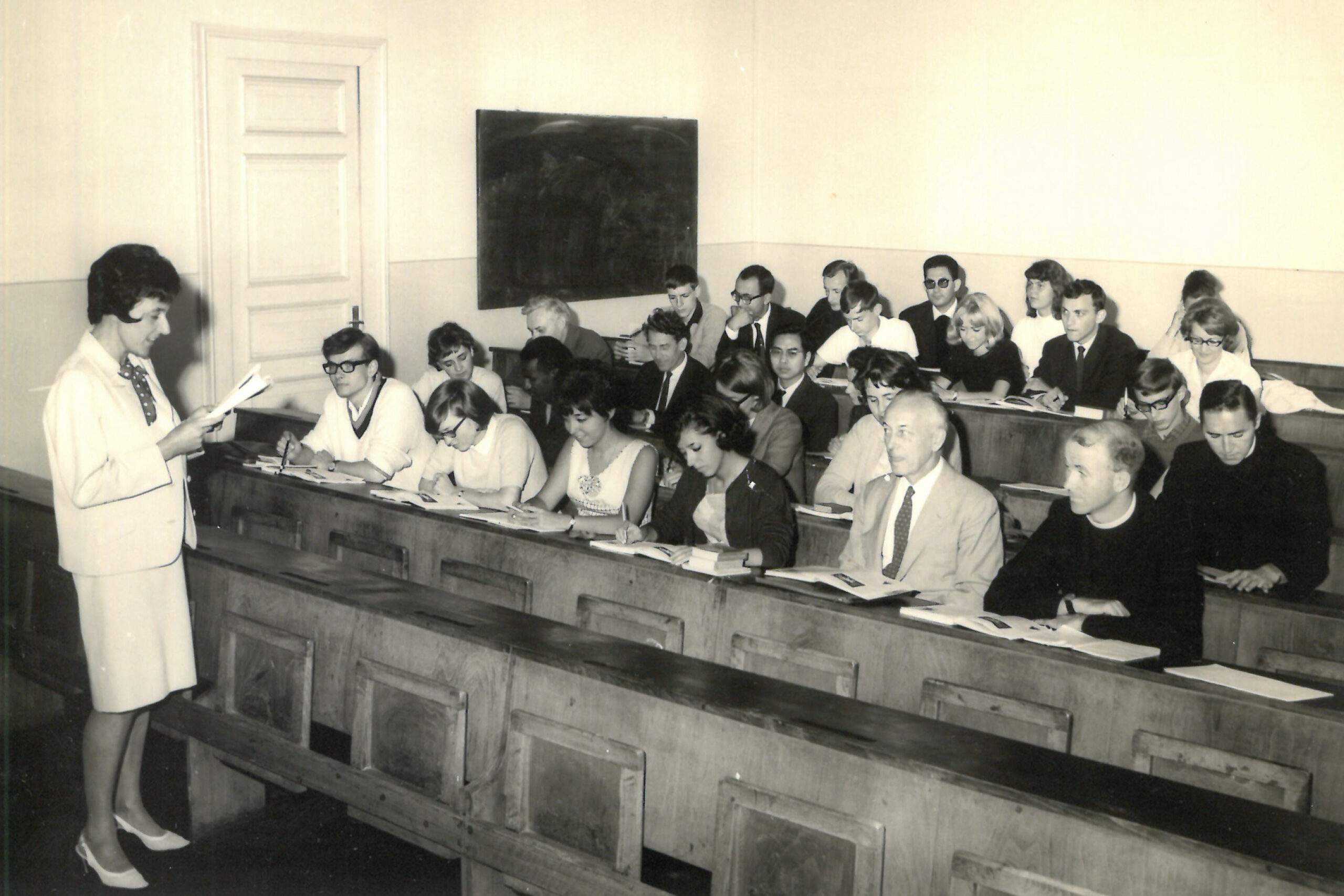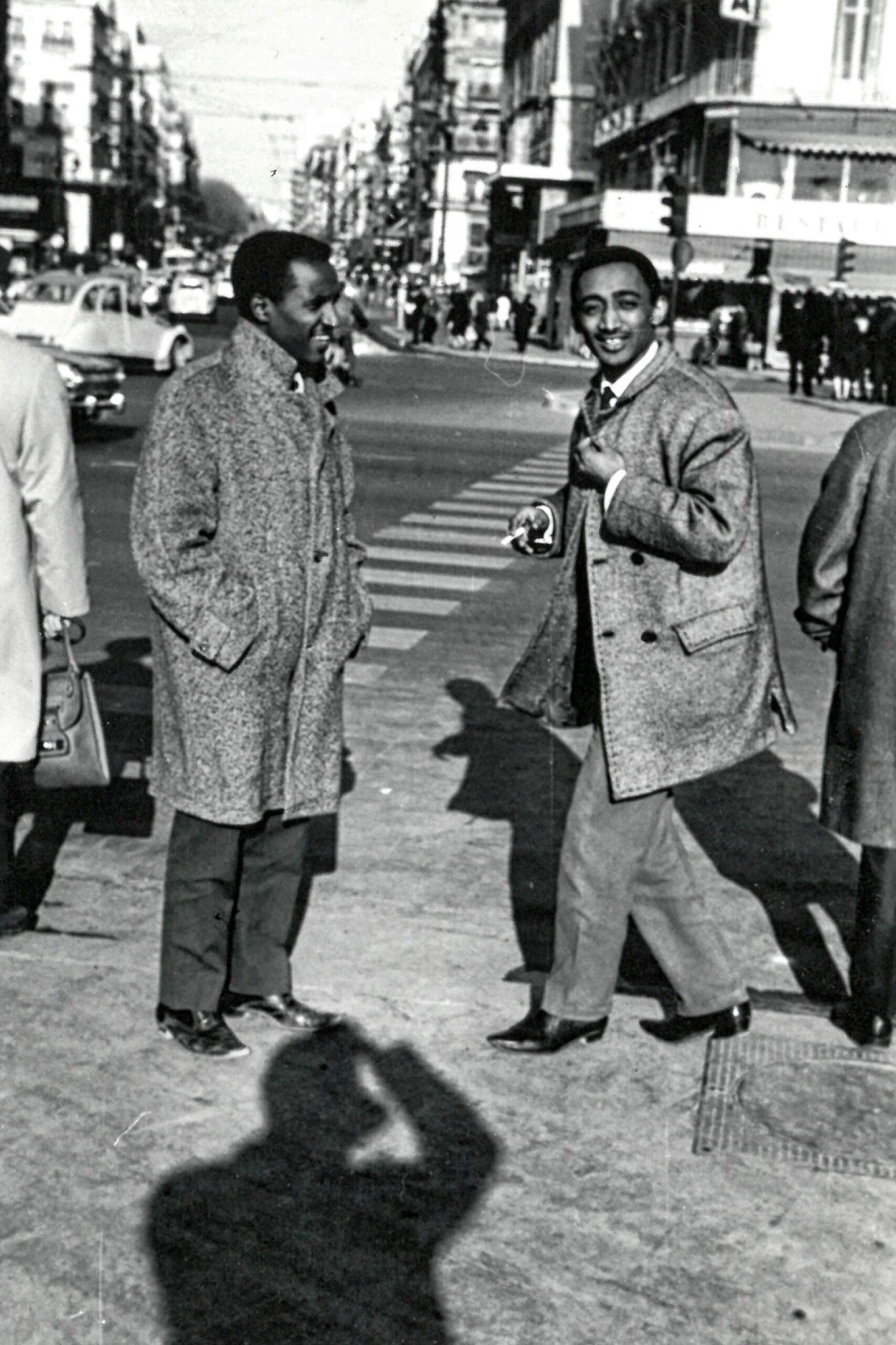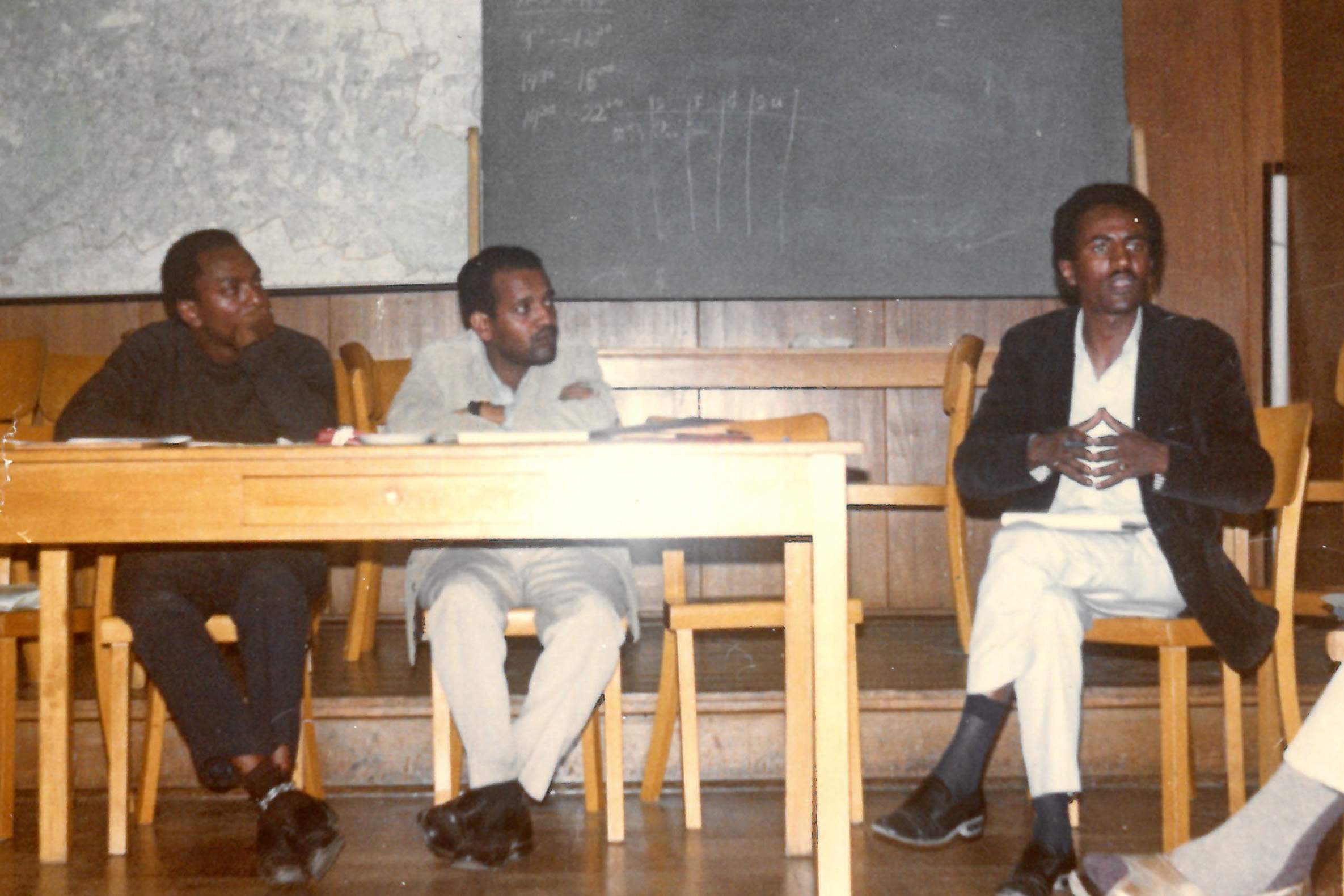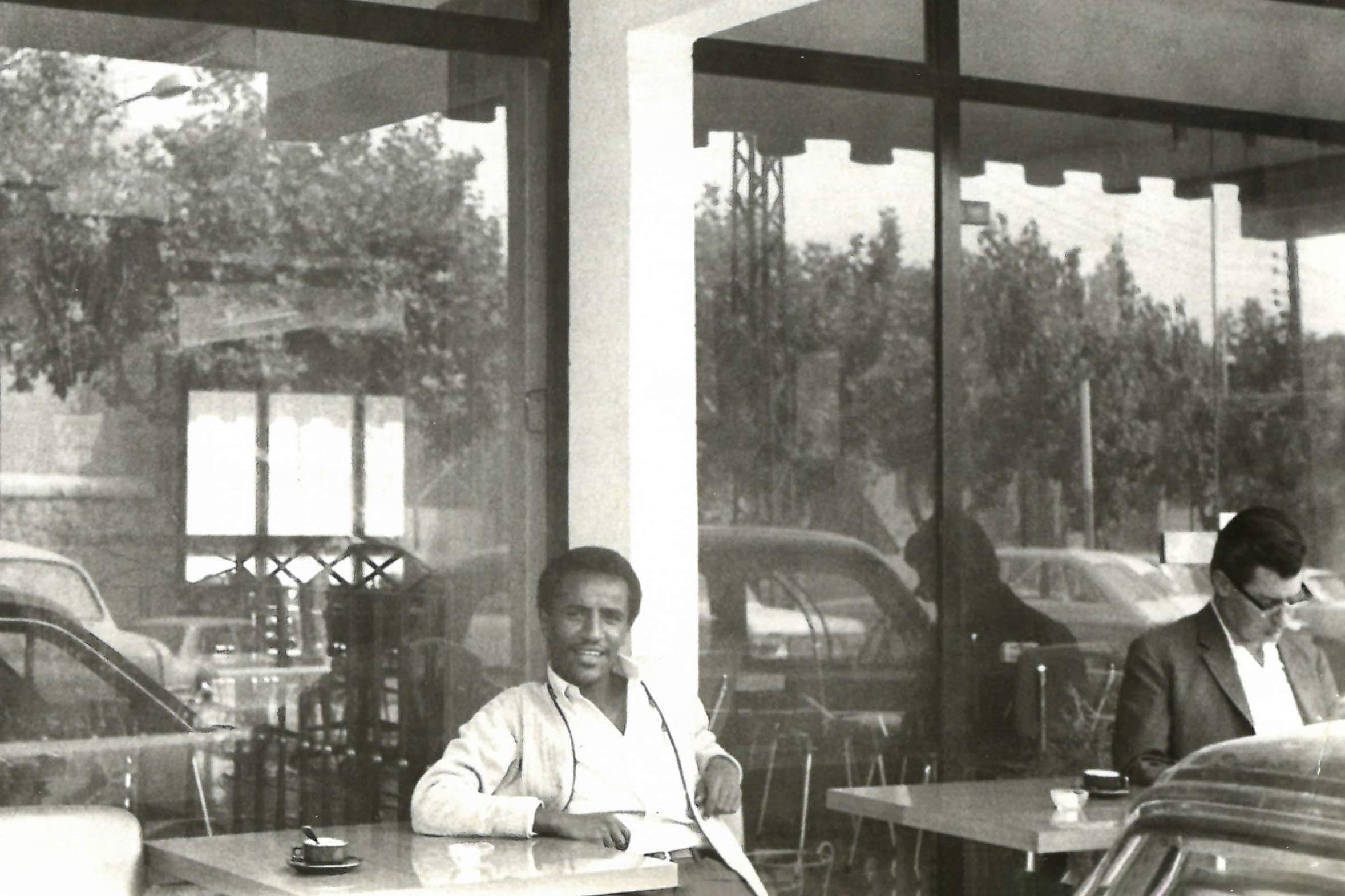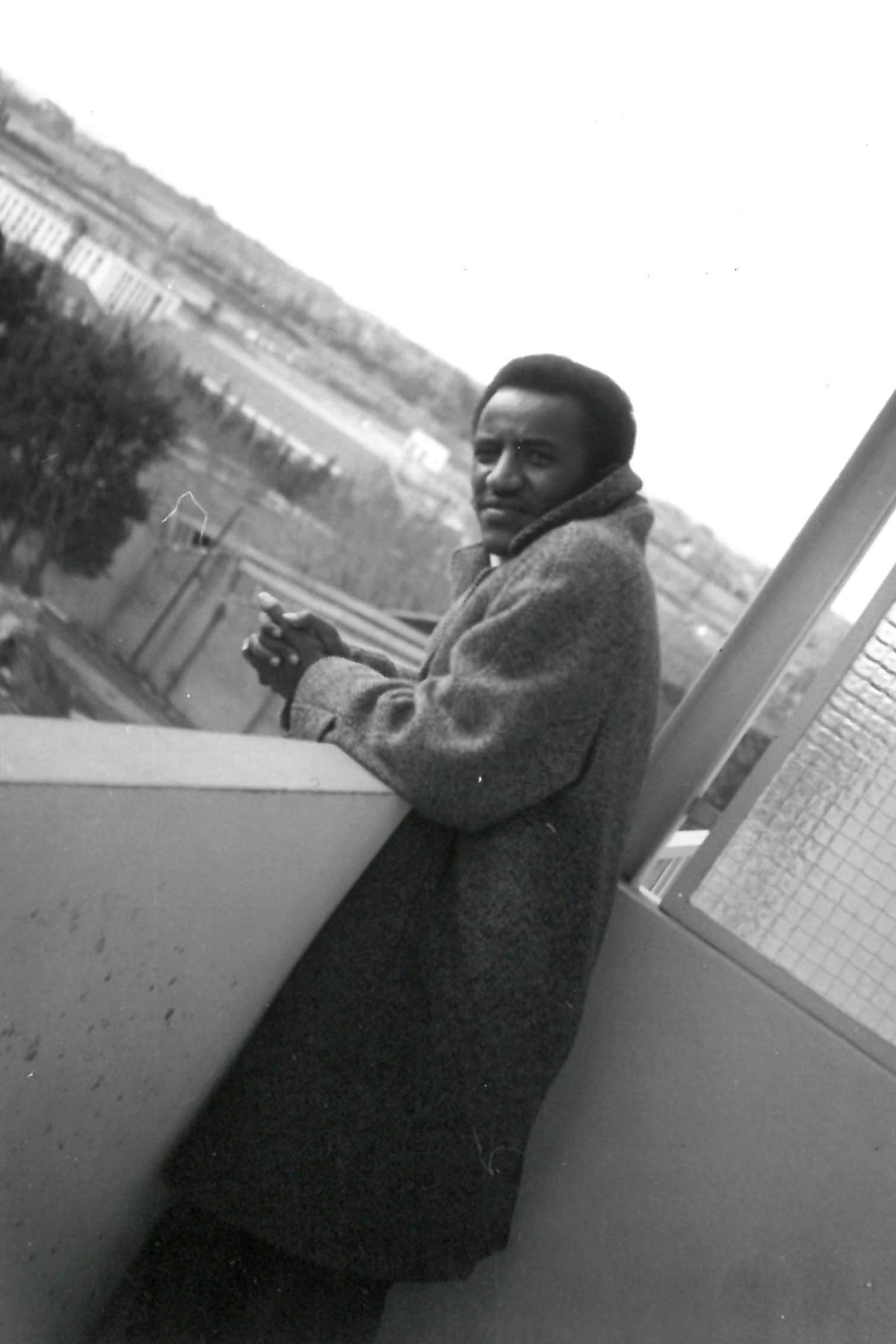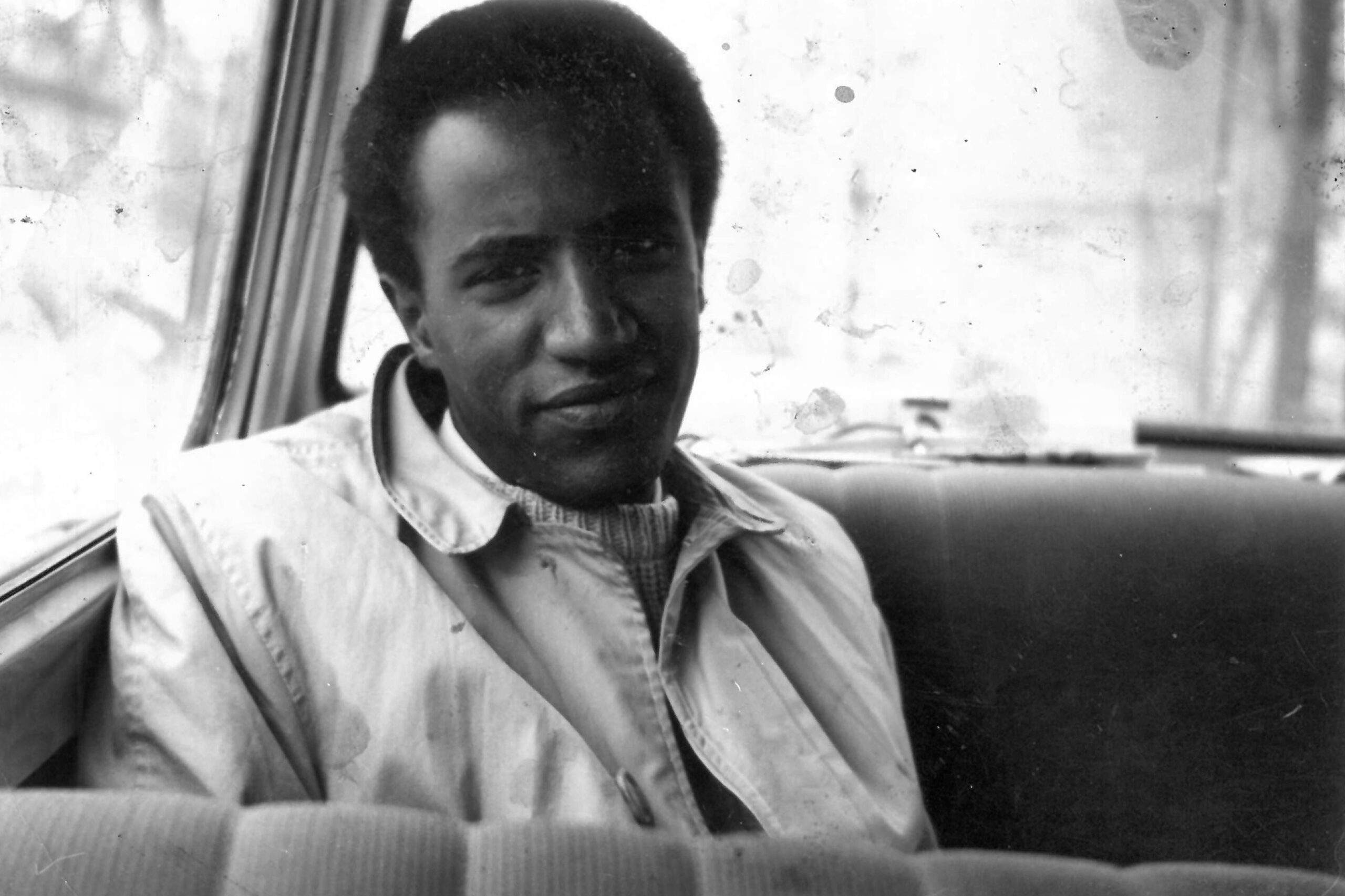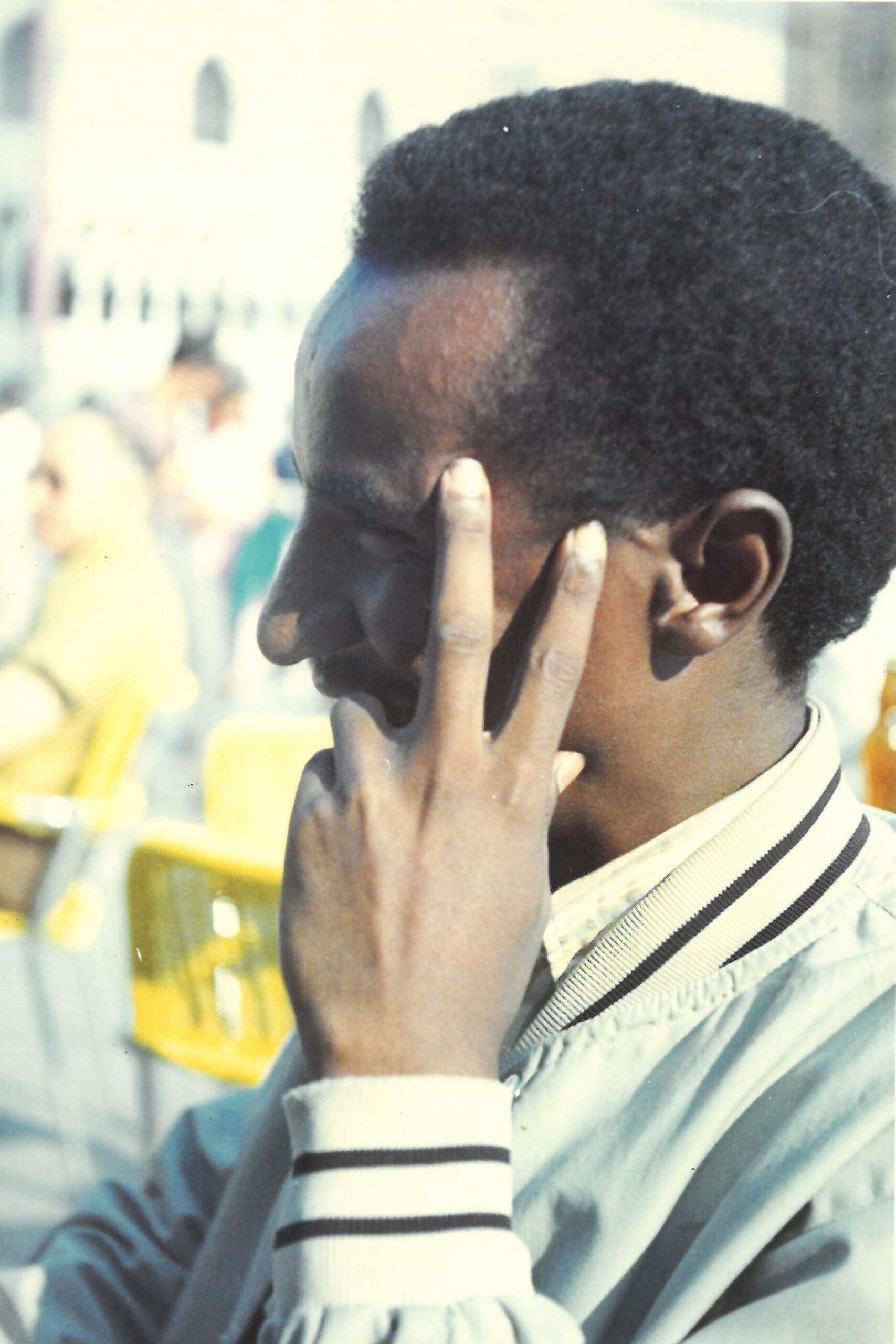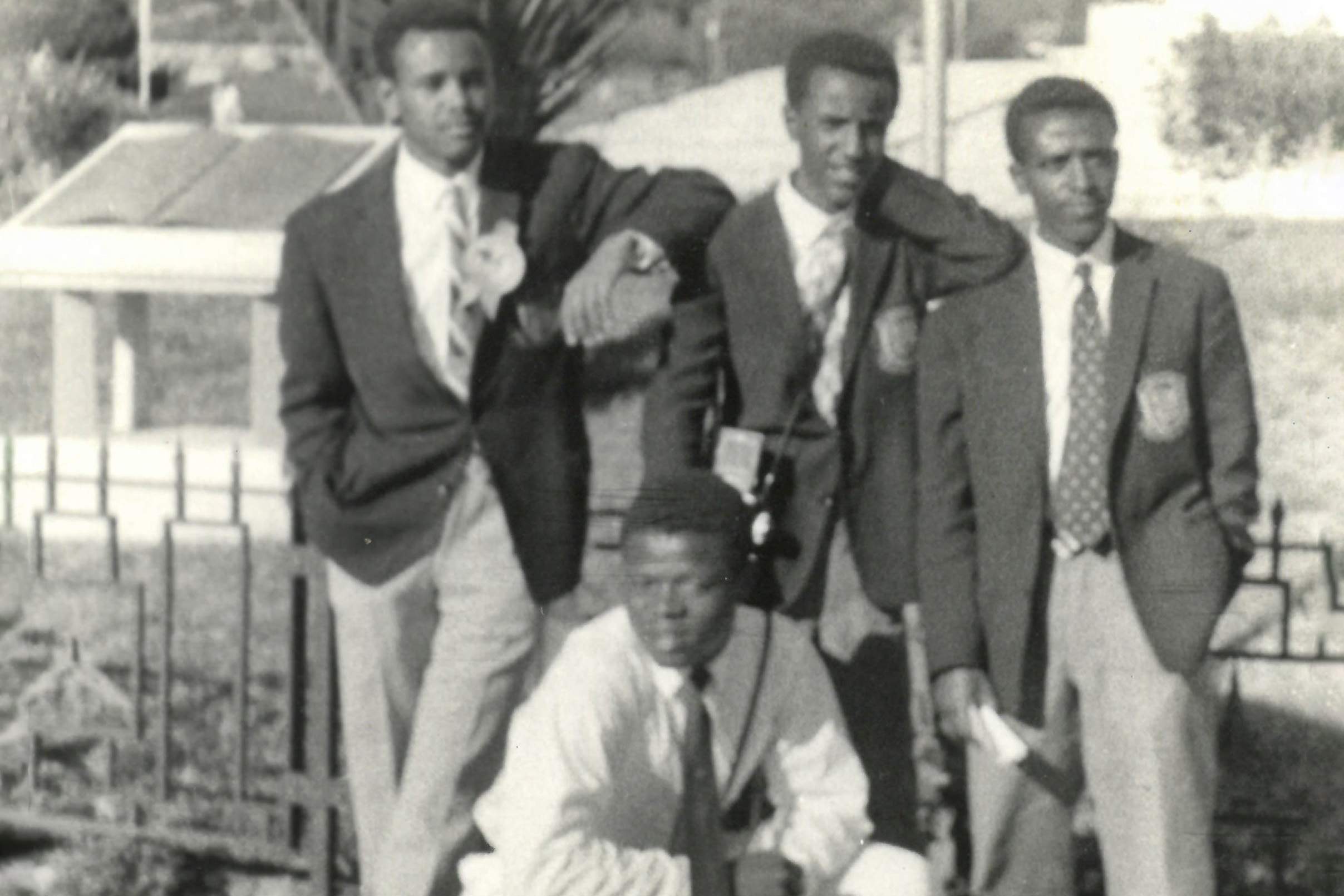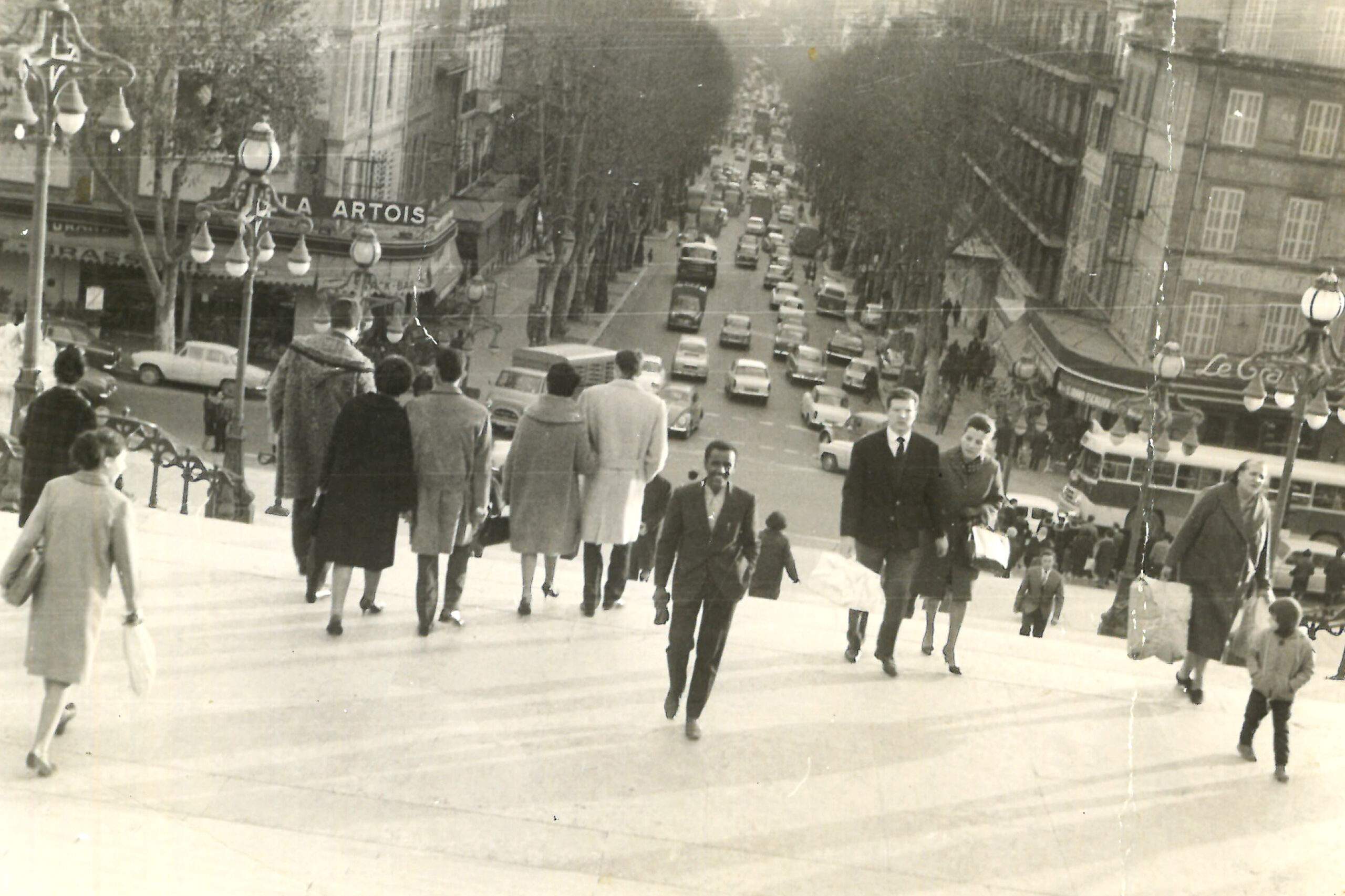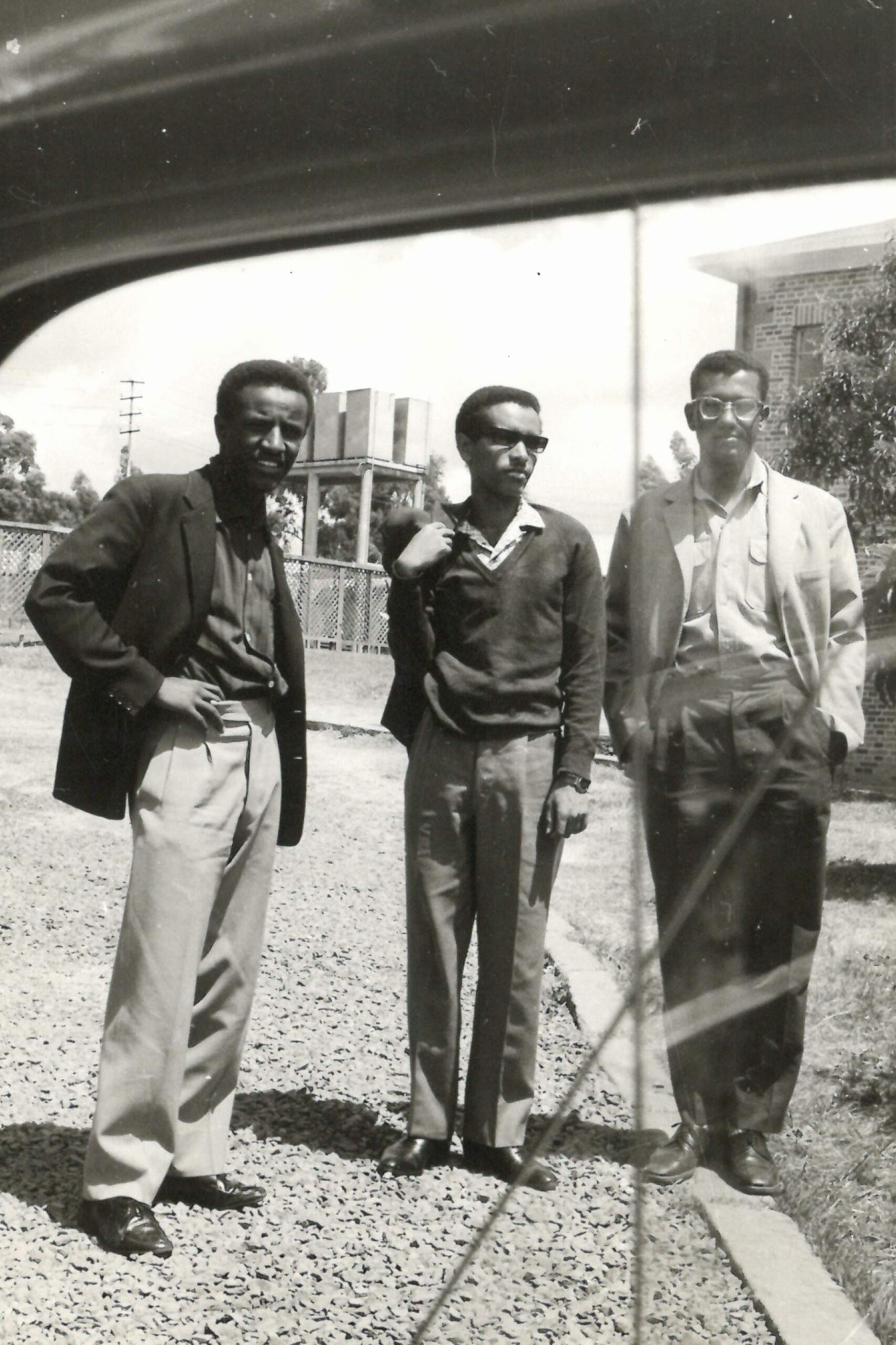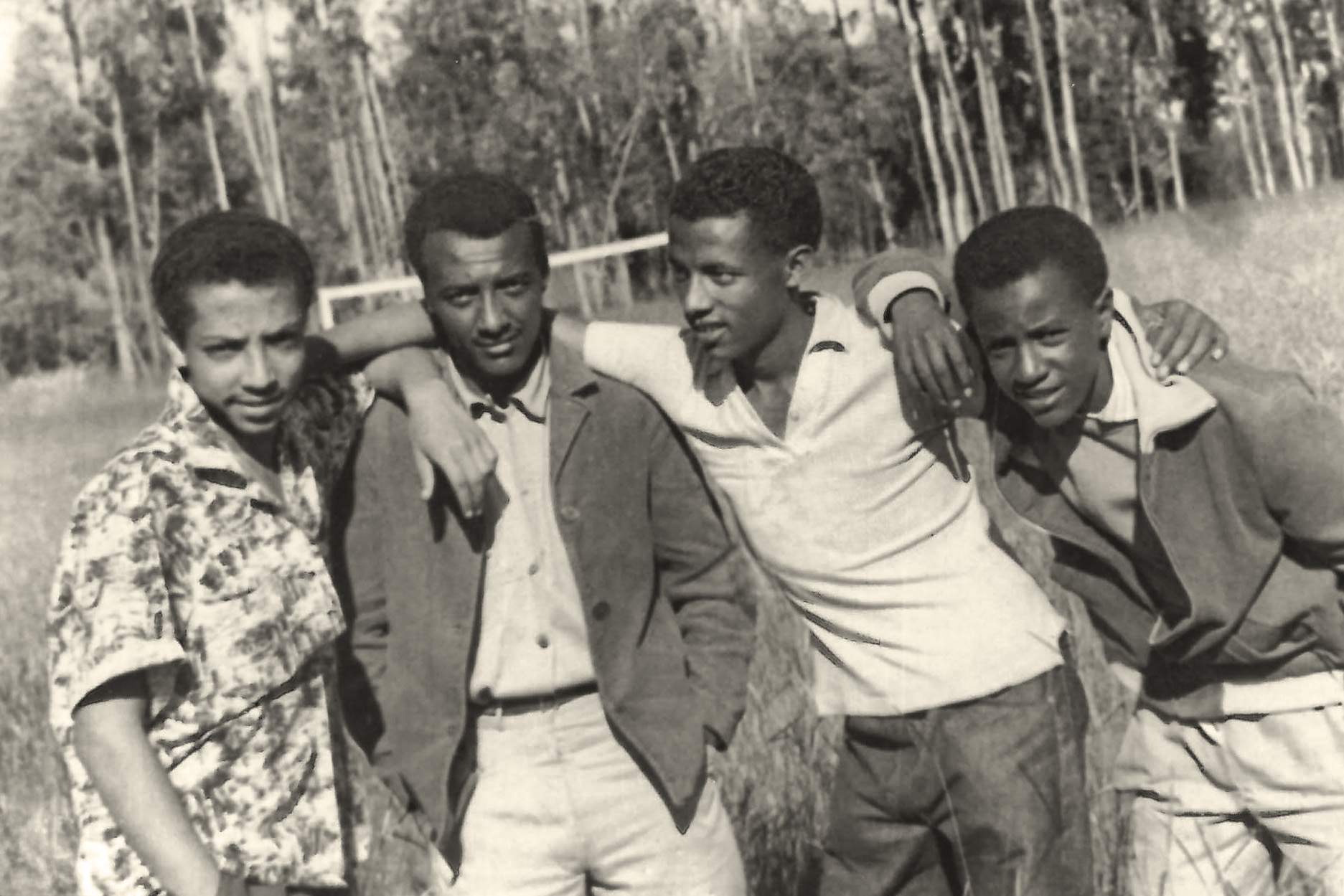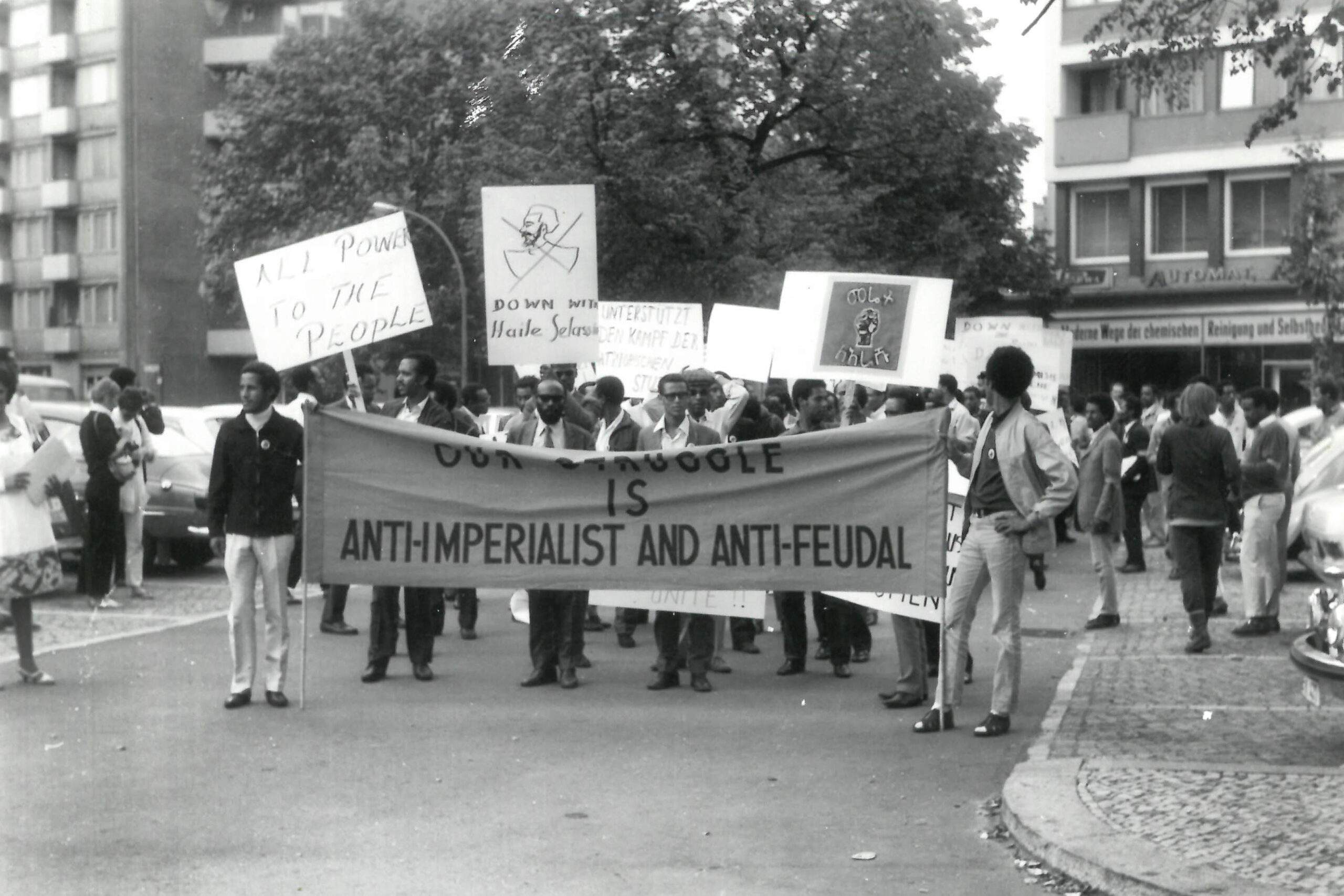BIOGRAPHY
"I am twenty with sixty years of experience."
BIOGRAPHY
"I am twenty years old with sixty years of experience."
With these words, Negede celebrated his eightieth birthday in October 2023. These sixty years of experience are deeply marked by a political commitment to social justice, respect for human rights, national independence, political pluralism and the establishment of a democratic system where the people of Ethiopia live in respect, equality and fraternity.
A Youth Shaped by Poetry
And yet, as a young man, Negede had a penchant for poetry. At the age of 11, he wrote his first poem, entitled « Welcome Home Emperor Haile Selassie », in homage to the emperor’s return from an official visit to the United States. This poem was published in 1954 in a national newspaper, mentioning that it came « from an 11-year-old boy from the town of Dessie » without indicating his name as the author.
Nor was he keen on politics when he was studying economics at University College in Addis Ababa. At the time, the students were critical of Haile Selassie’s regime and denounced inequality, poverty, etc. Unlike his fellow students, he chose to enter the annual University College poetry competition in 1955 with a satirical poem entitled « Agul Bota Ameshche ». This poem portrayed an old conservative father confronted with modern youth. He won first prize.
Political Awakening
His political awakening would develop later, after his arrival in Aix-en-Provence, France, where he pursued his higher education. His interactions with French students gradually led him to familiarise himself with Marxism and Trotskyism in particular.
Negede’s commitment to his country’s cause began when he joined the Ethiopian Students Union in Europe (ESUE), which was created in 1960 with the support of Emperor Haile Selassié. Initially, it was a reformist organisation aiming to bring students together to exchange experiences with a view to contributing to the country’s development on their return home.
Gradually, ESUE adopted a Marxist outlook and began its struggle against feudalism, the monarchy and imperialism. By 1964, the break between the emperor and the students was complete. After 1964, Negede became increasingly involved in the activities of ESUE.
- December 1966-1967: President of Ethiopian Students Union in France
- August 1968-1971: Member of the editorial board, Ethiopian Students Union in Europe (ESUE)
- August 1970-1971: President of the Ethiopian Student Union in Europe (ESUE)
- In 1968: Co-founder of the All-Ethiopia Socialist Movement (Me’isone) in Hamburg.
Role in the Ethiopian Revolution
In 1974, the Ethiopian revolution broke out and the ‘Provisional Military Government of Socialist Ethiopia’ (the Derg) took power. Like most of his comrades, Negede returned home to take part in the change. Me’isone adopted a policy of critical support as regards the military regime to advance the demands of the population. The slogan « Land to the Tiller », championed by Ethiopian students, materialized when the Derg proclaimed a radical land reform program in 1975. Me’isone mobilised all its forces to help implement this important reform.
Between April 1976 and August 1977, cooperation between Me’isone and Derg was formalised with the proclamation of the National Democratic Revolution Programme in April 1976. The Provisional Office for Mass Organizational Affairs (POMOA) was created to implement the program.
Negede became a member of POMOA and editor of its fortnightly newspaper Abyotawit Ethiopia. He was also responsible for drafting a Declaration of Democratic Rights, which the Derg refused to proclaim.
This refusal became a bone of contention between the Derg and Me’isone, and one of the reasons leading to a rupture of relations between the two and the eventual withdrawal of its policy of critical support vis a vis the Derg in August 1977. In the months that followed, repression intensified. Political assassinations, summary executions and arbitrary arrests were carried out against Me’isone and other progressive forces. Negede, who was abroad at the time, was one of the few survivors of that generation who died for the ideals of social justice, respect for human rights, democratic freedoms and living together as equals.
Deeply affected by the loss of his comrades, he expresses his pain through poems, a rediscovered his passion from the time when he was a youth. In 1978, he wrote a poem entitled « Bey Beiré », which literally means: « Speak my pen; tell the truth; don’t be afraid; denounce the traitors; but remain steadfast by your principles; stand firm to tell the truth ».
Activities in Exile
Since 1977, Negede has taken many initiatives while living in exile.
- In 1979, he set up the Comité de Solidarité avec les Victimes de la Répression en Éthiopie (Solidarity Committee with the Victims of Repression in Ethiopia), which later became the Comité de Solidarité avec l’Ethiopie (Solidarity Committee with Ethiopia).
- In 1990, he founded the Groupe de Recherche et d’Action pour la Paix en Ethiopie et dans la Corne de l’Afrique (GRAPECA) to promote peace, democracy and respect for human rights.
Under the aegis of GRAPECA, three major conferences were organised, bringing together Ethiopian intellectuals and political organisations to discuss and formulate a proposal for a democratic transition:
- The first conference, held in 1991, dealt with the problem of transition – from war to peace and from dictatorship to democracy.
- In 1993, with the support of the European Union and the United States, a second conference was organized. It focused on the issues of peace and national reconciliation, culminating in a major conference on the same subject in Addis Ababa,
- In 1998, the third conference tried once again to bring together Ethiopian opposition political organisations to relaunch dialogue with a view to a common approach to democratic transition.
GRAPECA promoted a culture of peace through its independent radio stations such as Radio Selam (Radio Peace) and Keste Damena Radio (Rainbow Radio). Broadcasting from outside the country, these radio stations raised listeners’ awareness of issues such as human rights, democracy, peace and civic education. They helped to break the state monopoly of the media.
A Man of Many Passions
Negede’s life is not just about politics. An avid music lover, he plays the Kirar (traditional guitar) and the harmonica. He also has a passion for collecting the lyrics of traditional songs, often full of puns and double meanings. He has a collection of around a thousand songs lyrics.
Negede is also known for his quick wit and repartee. His sharp, spontaneous retorts bring laughter to those he speaks to. One of such many anecdotes illustrates this aspect of his personality: during the defence of his thesis on a comparative study of the constitutions of the Empire of Ethiopia and the Republic of Tanzania, the chairman of the jury remarked to him: « You speak as if these leaders are still alive whereas they have all been executed a month ago ». While it is true that more than 60 leading figures of the former regime were executed by the military regime in November 1974, Negede spoke of these figures without mentioning their execution. However, Negede replied to the President, « Listen, Professor, I’m presenting a thesis, not a newspaper ».
Through his writings, interviews and political stances Negede takes us on a journey through time, through the political history of Ethiopia and its leaders, and through the social upheavals that transpired in Ethiopia as well as his personal passions and commitments.
The family
July 2025
Timeline
Born on October 15, 1943, in the town of Dessie
His father, Mr. Gobezie Taffete was the Director of the Ministry of Education for Northern Ethiopia: Wello, Tigray and Begemder. His mother was Mrs. Belaynesh Ejigu. They met at the Queen Zewditu hospital in Addis Abeba where she was working as a nurse and his father was translator. They got married and had nine children. Negede is the third child in the family.
Mr. Gobezie’s lifelong goal was to spread education through out the country. In 1951, he presented a study to Emperor Haile Selassie and the Ministry of Education on how to develop an illiteracy programme. His proposal was supported, and he became the Director of this project in 1951 in Addis Abeba. The family moved from Dessie to Addis Abeba.
Due to his concern for education, he used to hire tutors for his children during school vacation. To motivate his children to improve their English language skills, he asked them to speak in English at home. One of the children reacted by saying “there is going to be total silence in this house.”
In Dessie, Negede attended Woizero Sihine School. Before completing his elementary education, Memhir Akale Wolde School was opened. But as there were not enough students for the 8th grade at the new school, some students were asked to skip grade 7 altogether and enter the 8th grade at Memhir Akale Wolde School. Negede was one of them.
Negede joined General Wingate secondary school in Addis Abeba. He was only 13 years old at the time. It was customary for secondary school students to go to the palace on Christmas Day to receive a gift from the Emperor. When it was Negede’s turn to receive the gift, the Emperor was taken aback by his young age and asked him “what are you doing here?” Negede replied, “Your majesty I came to secondary school after completing my elementary education.”
- First, Negede went to medical school. Only three weeks later, he decided to change his course of study and enrolled in the Faculty of Economics where he got his Bachelor’s degree.
- He was granted the opportunity to pursue his third-year studies in the United States through the Foreign Students Leadership Project. This project allowed third-year
- African students to spend a year in the USA before returning home for their fourth year. However, Lij Kassa Wolde Mariam, President of the University College of Addis Abeba and other authorities saw this program as a radical hotbed. The program was therefore suspended. Negede was not allowed to have a visa and to travel to the USA.
In 1964, Negede received a scholarship from the French government to study in Aix-en-Province. In addition, Ethiopian students used to get monthly grants from the Ethiopian governement, which made their standard of living better than that of other African students. He studied the French language for one year and then joined the faculty of Law. He graduated in December 1974 and got his PhD in Law.
In 1964, he began working at in the Ministry of Finance for a period of three months following his graduation from the University College of Addis Abeba.
While a student in France, he was employed at the University Library in Aix- en-Provence. He was also a teacher at the Institute for American Universities where third-year American college students were following their university studies in parallel with French language courses. He was teaching a class on African Political Institutions. In Aix en Province at that time, people often were meeting in cafés for meetings and other activities. Negede similarly taught his course in a local café, covering the tab for all of his students during each session.
After the Ethiopian Students Union in Europe’s (ESUE) 1965 congress in Vienna, Austria, his participation in political activities increased. From August 1968 to August 1971, he was member of the editorial board of ESUE. In 1971 he was a chairman of the board. From August 1970 to August 1971 he was president of the ESUE and until June 1972 he was president of the Worldwide Students Union, regrouping students’ associations in Europe, America (USA) Africa and the Middle East until June 1972. He was one of the founders of Me’isone in 1968.
- June 1975- August 1977: Founder and President of International Publishing House
- December 1975-August 1977: Negede served as a member of The Provisional Office for Mass Organizational Affairs (POMOA), established to help organize popular forces - peasants, workers, urban residents, youth and women's associations - to coordinate the course of the revolution. Negede also served as the president of the Information and Political Committee in this organization. Among the activities he carried out under this committee were:
- He participated in the establishment of the Yekatit 66 Political School
- He was editor of « Abyotawit Ethiopia” bi-monthly magazine.
- Participated in the creation of Ethiopian Marxist Leninist Organization. For some time, he worked as the secretary of this group.
- 1977 When Me’isone broke with the DERGUE, Negede was in Lausanne (Switzerland) where he went to participate in the 17th annual congress of ESUE. Following instructions from Me’isone leaders he decided not to return to Ethiopia.
- He started working as representative of Me’isone outside the country.
- September 1977-April 1978: Invited by the leaders of Cuba and Yemen, he stayed in both of these countries. These leaders to organise discussions between Mengistu and Me’isone, and Negede went to Addis Abeba and stayed for two months there at the Cuban embassy.
- 1980 created Comité de Solidarité avec l’Ethiopie (COSETH) and started working in France.
- 1990, he created and became the President of the Research and Action Group for Peace in Ethiopia and the Horn of Africa known by its French acronym (GRAPECA), With this organization he organized:
- A conference on “From War to Peace, and from Dictatorship to Democracy,” held in July 1993 in Paris, France. He was chairman of the Peace and Reconciliation Conference, which was organized in December 1993 in Addis Abeba, Ethiopia. He was coordinator of Ethiopian Political Parties Conference in 1998, in view of putting in place a common platform.
- Editor of the journal Addis Digest prepared by GRAPECA (1995-97)
- 1997 Founder and director of Radio Selam
- 1997-2002 founder and Director of Radio Keste Damena
- Member of the coalition of Ethiopian Democratic Organizations (CODEF-KINIJIT), representing Me’isone in 1990
- Chairman of Union of Ethiopian Opposition Organisations (Union ETEPODIH) in 1998.



